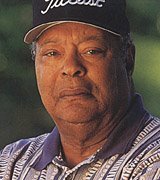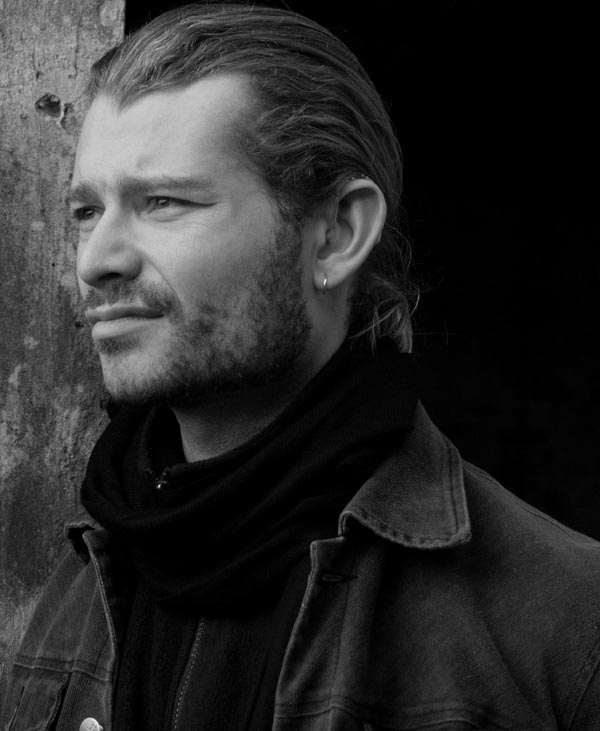 He once predicted his famous golfing son would “do more than any other human in history to change the course of humanity.” He compared Tiger Woods to Gandhi and Nelson Mandela, telling TV Guide that meeting Mandela “was the first time Tiger met a human being who was equal to him … who was as powerful as he is.”
He once predicted his famous golfing son would “do more than any other human in history to change the course of humanity.” He compared Tiger Woods to Gandhi and Nelson Mandela, telling TV Guide that meeting Mandela “was the first time Tiger met a human being who was equal to him … who was as powerful as he is.”Clearly, Earl Woods could get carried away. That was never much of a secret, even to those of us in the farm belt. So when he came to Bloomington in June 2001, as guest speaker for a BroMenn Foundation event at Illinois Wesleyan, a question begged: Was Woods’ perspective only occasionally missing in action, or lost altogether?
The answer came during an interview hours before Woods’ Shirk Center appearance. A few minutes in, it was apparent this was not a delusional maniac, but a loving father who shared far more than golf with his superstar son.
Earl Woods spoke of a Tiger only he knew on that Thursday afternoon, revealing that beneath the sweet swing and major championships was a guy with vices and flaws, just like you and me.
He told of a Tiger who at 9 years old reveled in playing tackle football with friends on a school parking lot, com-ing home with a broad smile and bloodied elbows and knees. Once, he returned to the doorstep in his friends’ arms, having run into a tree while chasing a punt.
Earl Woods admitted being embarrassed at Tiger’s childhood Christmas programs, saying, “He can’t carry a tune in a bucket.” The elder Woods added his son “has very little rhythm,” and that he grew up loving cartoons, video games, junk food and rap music.
This was a father who groomed his son for greatness on greens and fairways throughout the country, yet also played Nintendo with him (and lost) back at the hotel.
Likely, those moments are foremost in Tiger Woods’ mind today as he deals with his father’s death. Earl Woods died of cancer Wednesday at age 74, having seen his son evolve from a kid who feasted on tacos and McDonald’s hamburgers into the best golfer on the planet.
Earl Woods played a huge role in that development, supplying training, love and support. Tiger Woods was a natural from the beginning, appearing on the “Mike Douglas Show” at age 2 and shooting a 48 on the back nine of a public course as a 3-year-old.
Yet, his father provided the tools to hone those skills and feed Tiger’s passion, part of Earl Woods’ “game plan” for his son. They were in the car and in hotels a lot together, traveling to and from amateur tournaments from their California home.
Eventually, trophies and medals won in relative obscurity were replaced by multimillion-dollar paychecks and titles on a world stage. Earl Woods said in 2001 he saw it coming all along, and was determined to “prepare Tiger for responsibility.”
“I knew what Tiger was going to be … how good he was going to be and what he would do to the game of golf,” Earl Woods said that day. “The plan was for up close and personal support, and then as he matured and was able to handle the responsibility, to turn things over to him and pull back.”
The elder Woods did so in 2000, and Tiger won three of the four major championships. He was ready for what-ever pressures the game and his celebrity status could throw at him, just as Dad envisioned.
Earl Woods also looked forward to the day Tiger, through his charitable Tiger Woods Foundation, could have “an impact on children’s lives throughout the world,” and thus help “change the course of humanity.”
He did not live to realize that dream, and now must oversee its progress from heaven. He earned his place there, not by producing a sports legend, but joining Kultida Woods in raising a respectful and responsible son.
Earl Woods wasn’t crazy … just crazy about his child and what they gave one another.
There is no sweeter victory, even for Tiger Woods...
